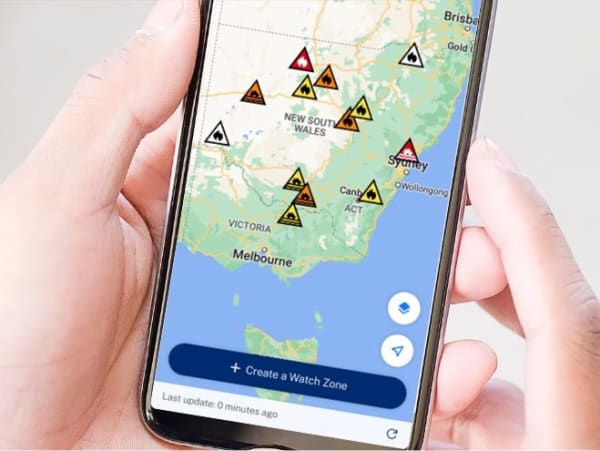At Austinmer RFS, volunteering is about more than fighting fires
It would be impossible for Austinmer Rural Fire Brigade’s senior deputy captain, Malcolm Bartrop, to put a number on the callouts he’s attended during his 45 years of service. But when asked about a callout he considers most fulfilling, it’s not a bushfire that comes to mind.

It would be impossible for Austinmer Rural Fire Brigade’s senior deputy captain, Malcolm Bartrop, to put a number on the callouts he’s attended during his 45 years of service.
Of the most memorable blazes, he tells me about the 1994 eastern seaboard fires that tore through the Royal National Park; about cutting Christmas Day lunch short in 2001 to fight the Black Christmas Bushfires, first at The Oaks and later Helensburgh; about multi-day deployments to Canberra in 2003, Albury in 2009 and Tenterfield in 2018; and about battling bushfire on New Year’s Eve in Nowra and at Green Wattle Creek in Belmore during 2019-20’s Black Summer.
But when asked about a callout he considers most fulfilling, it’s not a bushfire that comes to mind.
“I think the most satisfying one was Condobolin… helping the SES with the floods out there,” Malcolm said.
“We had a multi-strike team – we had people from the Hawkesbury and we had another couple of crews from here – and we were out there one day, and we got to an elderly couple's farm between Condobolin and Cobar, way out."
Malcom said while their house was all right, the floodwaters had gone through their office and their shed.
"We got into the office and we pulled all their furniture out so they could clean up in there, and then we went out to the shed that had piles and piles of memorabilia and photos… and we started cleaning the place out, and you had to be very mindful of their memories and their mementos.
“As an elderly couple, it would've taken them months to empty that shed, and the water had been up that high… but there probably would've been about 20 people at that farm on that afternoon.
“And they were just ecstatic. They got the beers out.”
For Malcolm, another callout that has stayed with him is the Coledale landslide disaster, when, in the early hours of April 30, 1988, days of high rainfall caused the Coledale railway embankment to collapse, washing away a home and taking the life of a young mother and her son.
“When we had the Coledale mudslide, I think we got called out sometime that night, and we were in the water, mud and searching for things, and we knew two people were missing,” he said.
“The rain came down and took out the railway line, and I remember when it came daylight, you could just see the railway track [had broken up].
“[We were] still looking in the morning."
Afterwards, Malcolm said, tragedies like this did affect volunteers. "[Then] you had no one really to talk to. Now, you can.”
Malcolm joined the Rural Fire Service in 1979, shortly after moving to the area from Melbourne, motivated by the fact that his new family home backed on to the thick bushland of the Illawarra escarpment. He didn’t realise the wide range of emergencies that he’d be responding to with the RFS.
“I just thought it was a bushfire brigade, and that's the perspective that we still have now,” Malcolm said.
“We go to motor vehicle accidents, we go to help police with search and rescues… doing flood assistance, storm damage. You don’t what you're in for until you get there.
“That's why it's been changed from New South Wales Bushfire Brigade to the New South Wales Rural Fire Service, because we're not.
"We're not just putting the wet stuff on the hot stuff.”
Volunteer firefighters at Austinmer meet at the station on Saturday afternoons to train, tidy the station, prep the trucks and catch up.
As the local population grows, so too should the station. A new facility is planned on Thirroul's Sea Foam Avenue to increase storage space and improve response time, but Malcolm says sourcing new recruits has been difficult.
“We do community events and do the open days, but it's hard now trying to get people because there's a lot of the locals that didn't know there was a brigade here, or because they're working all the time,” Malcolm said.
“In my day, most of the people worked around Wollongong, worked down at the port, and now it's changed.
“It's just giving you something to give back to the community, and just taking care of the place.
“It gets to be a community thing, you know, it's the camaraderie.
“We don't close our doors to anyone. We'd like to have more locals.”
To volunteer, visit the RFS website.
Don't forget to download the new Hazards Near Me NSW free smartphone app. This is a mobile application on IOS and Android to help you stay up to date. This app replaces Fires Near Me NSW.





